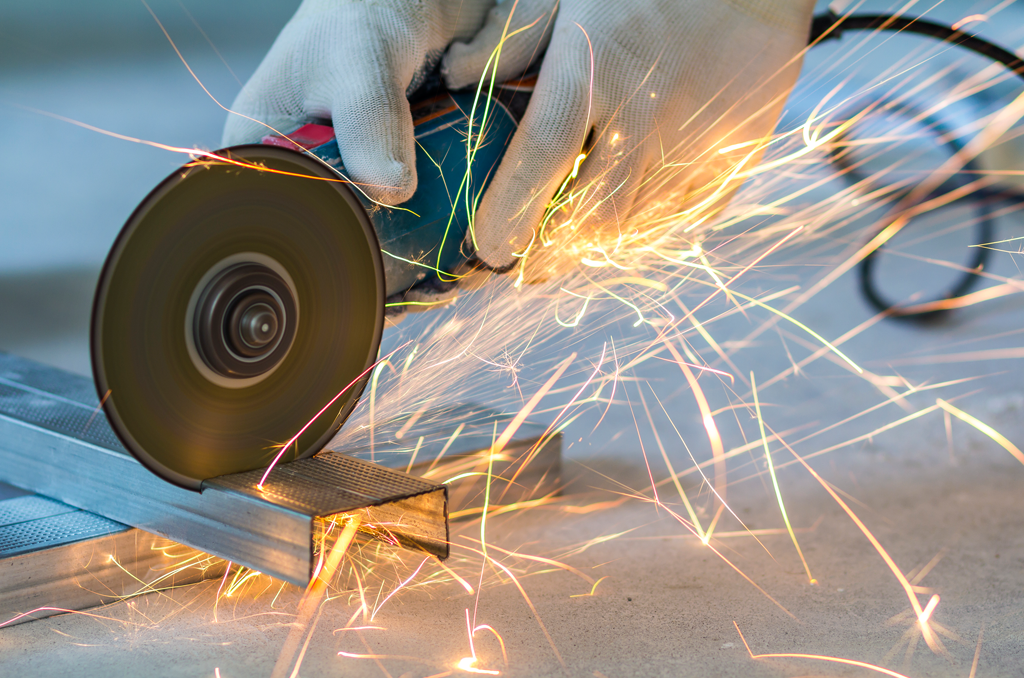What you need to know about metal fabrication?
Published date: 29 September 2023

Metal fabrication is a cornerstone of modern industry, playing a pivotal role in the construction of countless structures and machinery. From skyscrapers to automobiles, metal fabrication is an essential process that involves the cutting, bending, and assembling of metal materials to create functional structures and components. In this blog post, we will delve into the world of metal fabrication, exploring its various aspects, techniques, and applications.
Understanding Metal Fabrication
Metal fabrication is the process of transforming raw metal materials into finished products, components, or structures. This versatile field encompasses a wide range of techniques and skills, making it indispensable in a wide range of industries, including construction, manufacturing, automotive and aerospace. Let’s explore the three key processes of metal fabrication:
Cutting
One of the fundamental processes in metal fabrication is cutting. This involves removing excess material from a metal sheet or piece to achieve the desired shape and size. Various methods are employed, including traditional techniques such as sawing, shearing and chiselling, as well as advanced methods like laser cutting and water jet cutting. Each method offers distinct advantages in terms of precision, speed, and suitability for different types of metal.
Bending
Bending is another critical aspect of metal fabrication, enabling the creation of intricate and functional components. Through the application of force, metal sheets and bars are carefully bent to specific angles or curves, resulting in components that can fit seamlessly into larger structures or machinery. Press brakes, rollers, and specialized bending machines are used to achieve precise bends, ensuring the structural integrity of the final product.
Assembling
Assembling involves joining metal components together through various techniques, including welding, riveting, bolting, and adhesive bonding. Welding, in particular, is a method that fuses metal pieces together through the application of heat and pressure, creating strong and durable connections. The choice of assembly method depends on the intended use and the materials involved. Structural steel and sheet metal are common materials for assembling.
Types of Metal Fabrication
Metal fabrication is a versatile field, and it encompasses various specialised areas. Here are three distinct types of metal fabrication, each catering to specific sectors:
- Structural metal fabrication: Structural metal fabrication focuses on the creation of load-bearing structures, such as buildings, bridges, and platforms. In this branch of metal fabrication, the emphasis is on precision and durability, ensuring that the resulting structures can withstand significant loads and environmental conditions. Skilled fabricators work with a range of metals, including steel, aluminium, and titanium, to produce the framework that forms the backbone of modern infrastructure.
- Industrial metal fabrication: Industrial metal fabrication caters to the manufacturing sector, producing machinery, equipment, and components used in various industrial processes. Manufacturers rely on industrial metal fabricators to craft components that meet strict specifications for reliability, efficiency, and safety. From conveyor systems to custom machinery parts, industrial metal fabrication plays a pivotal role in keeping factories and production lines running smoothly.
- Commercial metal fabrication: Commercial metal fabrication serves businesses in diverse sectors, providing customised metal solutions for commercial spaces, retail environments, and architectural projects. This type of fabrication often involves creating aesthetically pleasing and functional metal elements such as ornamental railings, decorative facades, and signage.
At Conro Electronics, we’ll show you how to improve product reliability while increasing performance and lowering costs. Our team of technical support specialists will provide your company with dependable global supply, unrivalled efficiency, and superior technical support.
Feel free to contact us on 0208 953 1211 or send us an email to info@conro.com




Comments
There are currently no comments, be the first to comment.